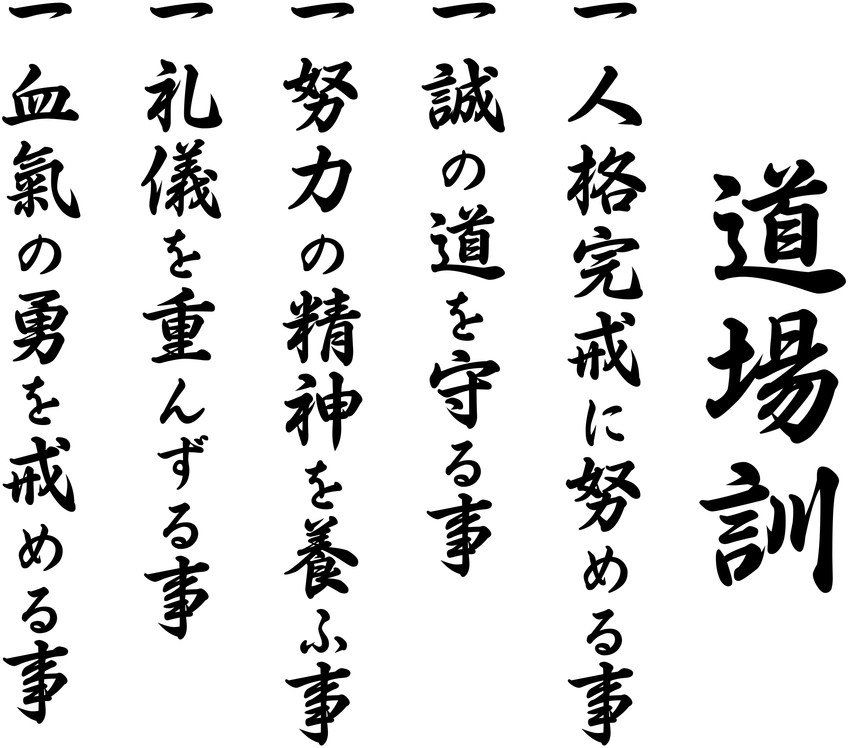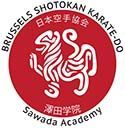Join us!
We welcome everyone.
Karate has no age limitation. Young or old. Male or female, Karate is for everyone. Karate is a life long learning experience which is why it is accessible to all.
We kindly request that you arrive at least 20 minutes before the training commences for your first class so we can help you settle in.
For the first few times, you can train with the usual sports attire. Eventually, you should invest in a karate-gi (karate attire).
If you or your child is completely new to karate, the instructor will assign a 'Sempai' (senior student). His or her role is to explain to you dojo etiquettes and basic techniques. This way you will feel comfortable as you continue to learn and progress. Karate is not about fighting or winning. It is the mastery of discipline, humility and self defence techniques, among other character building ideals.
We
know exactly how you or your child may feel when attending the first class . Everyone in the club started our karate practice the same way, a complete beginner.
Training Schedule
17:00-18:00 Kids from 8 yrs
18:30-20:00 Adults
Ce qui précède est notre programme de formation général. Le dojo est fermé pendant les vacances d'été (juillet-août, premiere & dernière semaine de l'année, jours fériés et certains jours de l'année).
French is mainly used, while English is also widely spoken during training.
Les cours sont principalement donnés en français.
Benefits of practicing Karate.
From a self-defence perspective, research shows that during during real-life confrontation, the body undergoes a PCSR (Psycho Chemical Stress Response). When this occurs, the ability to access logical thoughts all but diminishes. Instead, under the conditions of PCSR, the human brain accesses what is referred to as the ‘Primal Brain’, which control instinctive behaviour. So what does this all mean? Unlike self-defence courses that show a person a set of logical defences against a potential attacker (none of which become instinctive) karate training sets out to develop appropriate ‘instinctive‘ habits in its participants. This gives them the ability to act accordingly under conditions of a stress response.
While it is a system of self-defence with a full body workout, unlike other sportive activities, karate promotes humanitarian and social respect for other others. We work to become more disciplined, more patient within oneself, and above all, encourages humility above ego.
- Through discipline we build self-confidence.
- Karate requires concentration and focus.
- A "Never give up" attitude building a higher tolerance for frustration, challenges and negative emotions.
- A drive to improve and bring ourselves to the next level.
- No matter how good we get, our ego should never be above humility.
Principles of Karate
1. Hitotsu, jinkaku kansei ni tsutomuru koto. / Seek Perfection of Character.
Karate is more than just physical. It is a long path to develop our character.
2. Hitotsu, makoto no michi o mamoru koto. / Be Faithful.
To be faithful or loyal is a strong samurai tradition and an extension of the Confucius influence on the family and martial arts.
3. Hitotsu, doryoku no seishin o yashinau o koto. / Endeavor.
Complete dedication and commitment to do our best.
4. Hitotsu, reigi o omonzuru koto. / Respect Others.
Respect for others is an important part of Karate. Master Gichin Funakoshi stressed that karate begins and ends with etiquette. He also stated that without courtesy there is no dojo.
5. Hitotsu, kekki no yu o imashimuru koto. / Refrain From Violent Behavior.
The karate-ka's has a highly competitive spirit, unbeatable and must use the knowledge only for the sake of justice. It is wrong to use it against an untrained person or unjustified cause.

